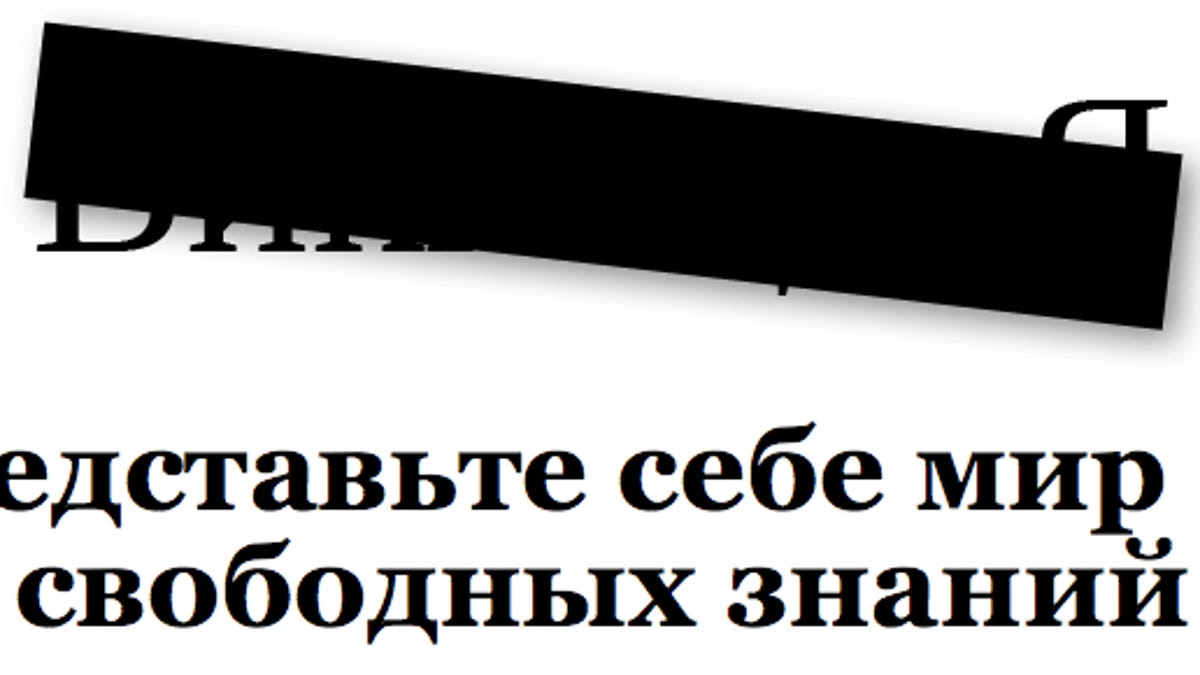Wikipedia blackout in Russia to protest censorship
If proposed amendments to a Russian law get passed, a wave of censorship could ripple through the country's Web sites including a complete closure of Wikipedia.

Wikipedia shut down for 24 hours, just six months ago, joining a massive Web protest in the U.S. over the proposed anti-piracy laws SOPA and PIPA. Now, it's stepping up again in a major Internet revolt against online censorship in Russia.
According to The Next Web, the Russian government is looking to amend a law called the "Act for Information." The proposed changes to the law could lead to sweeping censorship of the Internet, including the complete closure of Wikipedia in Russia.
Wikipedia posted a statement in Russian on its Web site, which The Next Web translated; this is what it says:
Lobbyists and activists supporting the amendments, argue that they are directed exclusively against the content such as child pornography "and things like that," but to follow the provisions and wording to be discussed, will result in the creation of a Russian analogue of the "Great Chinese Firewall." The practice of law, which exists in Russia, says a high probability of worst-case scenario, in which access to Wikipedia was soon to be closed across the country.
In addition to the proposed amendments to the "Act for Information," the government is also mulling over another bill that harkens back to the country's Soviet past with harsh censorship crackdowns. Under the draft bill, all Web sites that contain pornography or drug references, or that promote suicide or other "extremist ideas," will purportedly face blacklisting.
These new laws come in the wake of an online uprising that happened before the inauguration of Russian President Vladimir Putin in May. During these protests, thousands of people took to writing on blogs and social networks demanding a new ballot after claims of rigged votes and electoral corruption during Putin's election.
Russia isn't known as a Web-friendly country. Earlier this year, Reporters Without Borders listed it as an "Under Surveillance" country in its "Enemies of the Internet" report. And just last month, Russia came under scrutiny for proposing amendments to a U.N. treaty that could lead to censorship of citizens who use the Web to voice government opposition.
The Russian government is scheduled to decide whether to pass the proposed amendments on the "Act for Information" tomorrow.

